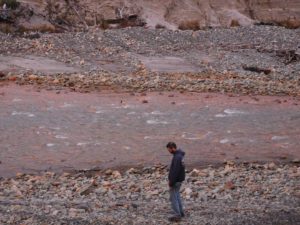
Unless a sudden cataclysm wipes out all of remaining humanity at once, there will someday actually be one final person alive. In my imagination, this human “endling”—the final, lone representative of our species before it goes extinct—would be conscious of himself and his situation. He would still have enough passion and desire to contemplate his existence and discern the meaning of it all. I imagine him as reflective, a person who wanted to make sense of his strange, final reality—the last in a line of a hundred or two hundred billion people.
Here are some of the thoughts and feelings I imagine he would have:
“I am so lonely. What a misfortune to be a member of a social species, yet have no one with whom to socialize.” Continue reading

